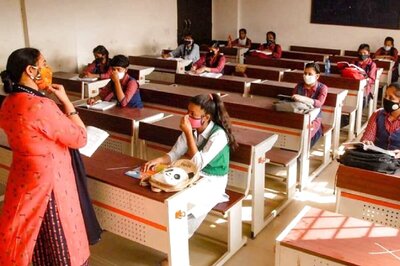
views
Gang rape and murder is a horrific crime - a crime warranting the harshest penalties in every country in the world. Yet, there are circumstances when such a crime is not just a crime where it is committed, but becomes an international crime – one which under international law every country in the world is mandated to act against, and prevent.
After the holocaust of World War II, every nation in the world signed up to ensure that a genocide, of any scale must not only be severally punished as a crime against civilisation, but also prevented.
The Genocide Convention of 1948 applies to crimes such as murder, rape, expulsion from homes, etc. if committed with the intent to destroy, in whole, or in part, a national, ethnical, racial, or religious group. Causing serious mental or physical harm to members of a group, with such intent, is defined as genocide, as is deliberately inflicting on the group unbearable conditions of life is genocide.
Who can be punished for genocide? Those that commit it, of course. Also those who incite others to commit it. Obviously, those who abet and conspire, as well as those who are complicit in its commission.
Who can punish? Genocide is a crime which is universal. Regardless of where it is committed, it is a crime against every nation, and every nation is bound to punish those who commit it.
India has ratified the convention, and indeed was a prime mover to make genocide an international crime. The fact that India has failed to make genocide a domestic crime only means that it is in violation of one part of the convention - its obligation to not only punish the crime of genocide, but also to enact a law to do so; not that it is not bound by its substance. It is required to act against crimes of this nature. It is still an international crime.
Nor does it matter that India has not signed the Rome Statute establishing the International Criminal Court. Just because the ICC does not have jurisdiction over events in India, does not mean that the international crime of genocide, and its established interpretation, does not apply to India, and events in India.
In this context, the question is, was the horrific gangrape and murder of a 10-year-old child committed in Kathua, committed with the intent to destroy in whole, or in part, the Bakherwal community of nomads. Reports on the chargesheet filed by the Crime Branch of the State Police tend to suggest so. That warrants that a charge of genocide to brought, defended, and adjudicated.
Crimes committed in Rwanda, the former Yugoslavia, and elsewhere have resulted in international courts determining what genocide is. They have determined that even one single act is genocide if done with an intention to destroy a part of a group. Rape and sexual assault of members of a group conducted with genocidal intent is causing serious bodily harm, and thus contributes or tends to contribute to the destruction of all or part of the group. Causing members of a group to have unbearable conditions of life include systematic expulsion from their homes, which is aimed, ultimately at the group’s physical destruction is genocide.
You don’t need gas chambers and killing fields to have a genocide. Its intention can be inferred from actions such as systematic expulsion or rape, if the likely outcome is the physical or biological destruction of a group. The key is the intent, and the circumstances – political and otherwise – of the expressed intent and act. If groups and individuals have been attacking and burning the homes of Bakherwals, and in one instance, gangraping and murdering a girl belonging to the ethnic community, it is a circumstance that supports a finding that the act of rape was done with genocidal intent.
The term genocide evokes a long history of law and conflict. It is often misused and misunderstood, but international courts and tribunals have developed the term sufficiently, so that we have no excuse not to confront it when it stares us in the face, as it does right now in the form of the motive of the Kathua gangrape and murder accused. Much of the outrage against the horrifying incident is understandably driven by the sense that the brutalised child could be any of our daughters. Except it is equally important to remember that she was not. She was the daughter of a Bakherwal Muslim, a community seemingly systematically persecuted.
To acknowledge that, e must therefore ask the question whether it constitutes genocide, and it must be answered through a judicial process that relies on the interpretation of the Genocide Convention. Only then can we do justice to the loss of a child, to the loss of community, and the loss of a sense that civilisation always prevails.
(Avi Singh is an advocate who specialises in transnational law and serves as the Additional Standing Counsel for the government of NCT of Delhi. Views are personal)




















Comments
0 comment